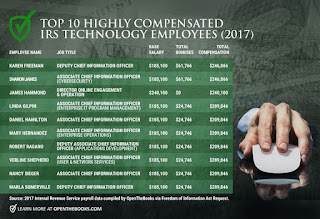According to Law360, Foreign investors stand to reap 43 percent of the economic benefits from the federal tax overhaul's effects on federal tax law during the next 11 years, according to a recent report from the Congressional Budget Office.
In a Wednesday letter responding to an inquiry from Sen. Chris Van Hollen, D-Md., the CBO said a new analysis of gross domestic product and gross national product projections show that from 2018 through 2028, foreign investors will obtain at least a 31 percent annual share of increases in the United States economy attributable to the Tax Cut and Jobs Act.
The share of foreign investors’ benefits from the TCJA jumps from 48 percent in 2026 to 60 percent in 2027 and peaks at 71 percent in 2028, the latest year the CBO projects the law’s impact on the economy. The CBO partly attributes the spike in the final two years of its analysis to higher individual tax rates that will take effect in 2026.
“In CBO’s estimates, the share is higher after 2025 in part because the lower tax rates on individual income expire and the subsequent effects on the supply of labor — and therefore on real GDP — are smaller, but the difference between the effects on GDP and on GNP changes little,” the letter said.
The CBO has estimated that the TCJA will reduce the amount of net foreign income earned by U.S. residents, meaning GNP, which includes income that residents earn abroad but excludes domestic income from nonresidents, will rise less than GDP.
The CBO used new calculations of the ratio of the federal overhaul's expected effects on both economic measuring sticks to determine the share of economic growth that will be realized by residents and foreign investors.
The letter said Van Hollen’s staff asked for more clarification on the TCJA’s effects on both GDP and GNP in real terms or after adjustments to remove the effects of inflation.
The senator sent the letter after the CBO released its first economic outlook of 2018, which estimated that recent legislative changes, including the new federal tax law, are projected to increase the budget deficit by $2.7 trillion more than previously thought.
A representative of Van Hollen’s office said the senator had no comment Friday, but shared a video of an exchange between Van Hollen and CBO Director Keith Hall at a Senate Budget Committee hearing on April 13.
At the hearing, Van Hollen asked if 80 cents of every dollar of increased economic activity from the tax law in 2028 “is not going into the pockets of hard-working Americans … it’s going into the pockets of foreigners, right?”
Hall responded that the calculation was correct but added, “I’m just not sure that’s exactly how I would look at the benefits or the impact of the tax act.”
The letter said the CBO revised that number to 71 percent after using “more precise estimates of the real effects on GDP and GNP, which CBO had not previously published.”
In a statement after the CBO’s release of its April 9 report, Van Hollen voiced his opposition to the TCJA’s effects on the economy, calling it a financial boon for special interests and the rich.
“Big corporations and foreign investors are lining their own pockets with record stock buybacks, while American families are facing higher health costs and still haven’t gotten the $4,000 pay raise they were promised,” he said.
The CBO report was the first analysis to take into account the effects of the TCJA, the Bipartisan Budget Act of 2018 and the Consolidated Appropriations Act. It predicted that the national debt will soar from $21.4 trillion at the end of 2018 to nearly $34 trillion at the end of 2028. The debt held by the public will be nearly the size of the U.S. economy at 96 percent of the GDP in 2028, according to the CBO.
Still, the CBO warned that there is a “good deal of uncertainty” behind its estimates, and said the effects of the new tax law depend on what policies state and foreign governments may enact in response, how businesses will rearrange their finances and how taxpayers will respond to changes in incentives to work, save and invest in the U.S.
We Can Advise on How These Tax Cuts Can Benefit You!
Contact the Tax Lawyers at
Marini & Associates, P.A.
for a FREE Tax Consultation contact us at:
Toll Free at 888-8TaxAid (888) 882-9243

























